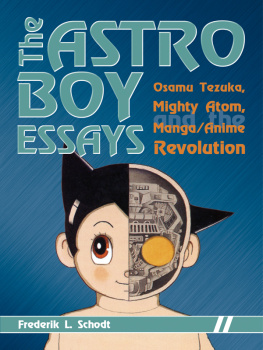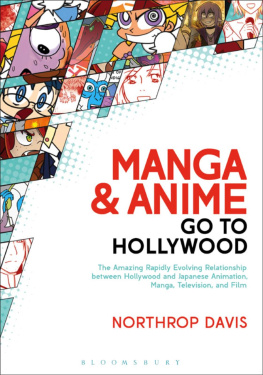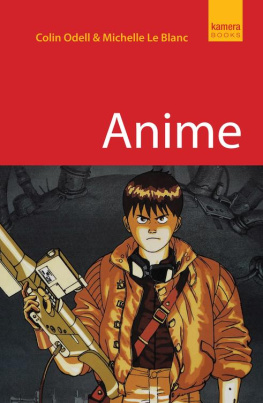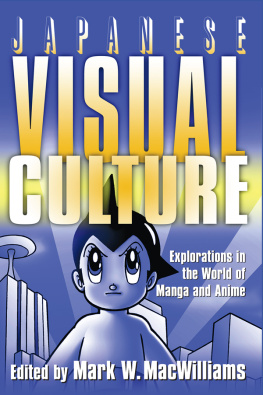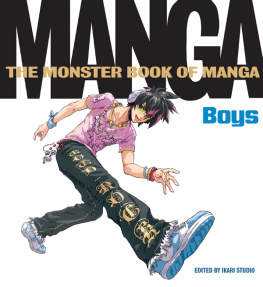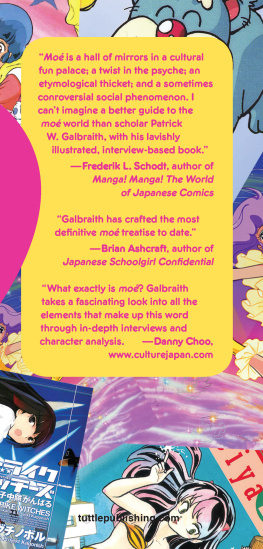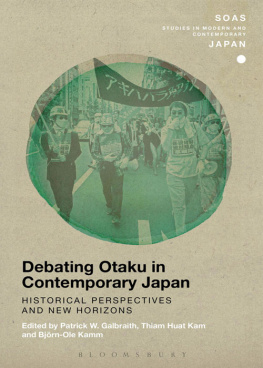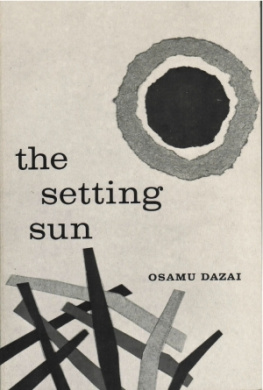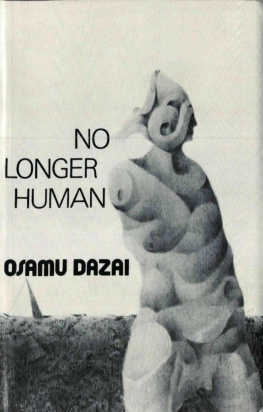
Published by
Stone Bridge Press
P.O. Box 8208
Berkeley, CA 94707
TEL 510-524-8732
All images were supplied by the author and are copyrighted by their respective rightsholders. Credits and copyright notices accompany their images throughout.
Astro Boy images in the front matter and on chapter-opening pages are used by permission of Tezuka Productions. Front cover Astro Boy image is used by permission of Tezuka Productions.
Text 2007 Frederik L. Schodt.
Cover and book design by Linda Ronan.
All rights reserved.
No part of this book may be reproduced in any form without permission from the publisher.
Printed in the United States of America.
2011 2010 2009 2008 2007 10 9 8 7 6 5 4 3 2 1
LIBRARY OF CONGRESS CATALOGING-IN-PUBLICATION DATA
Schodt, Frederik L., 1950
The Astro Boy essays : Osamu Tezuka, Mighty Atom, and the manga-anime revolution / Frederik L. Schodt.
p. cm.
Includes bibliographical references and index.
ISBN 9781933330549 (pbk.)
1. Tezuka, Osamu, 19281989Criticism and interpretation. 2. Comic books, strips, etc.JapanHistory and criticism. 3. Animated filmsJapanHistory and criticism. I. Title.
NC1764.5.J32T4937 2007
741.5952dc22
2007017227
This book is dedicated to
Osamu Tezuka (1928-89)
Introduction
The death of Osamu Tezuka on February 9, 1989, at the age of sixty, sent shock waves throughout Japan, especially among those raised in the postwar period on his manga and animation. Japan's much beloved and aged Shwa emperor had passed away the previous month, but the emotion surrounding Tezuka's death seemed greater and resulted in an outpouring of not only grief, but endless media retrospectives and eulogies. On February 10, the day after Tezuka's death, Japan's prestigious national newspaper, the Asahi, ran a prominent editorial titled Mighty Atom's Message, urging younger artists to pick up the torch that Tezuka had dropped and to maintain the values symbolized by his most popular work. It noted that Japanese seemed to love comics far more than in other countries, and that foreigners often found this strange. After rhetorically asking why, it answered its own question:
It is because in other countries they did not have Osamu Tezuka. The postwar comics and animation culture of
For most of his life Osamu Tezuka was largely ignored outside of Japan. It is only recently, with the Godzilla-like global rise of Japanese popular cultureand especially with the new overseas popularity of manga and animethat his name has begun to slowly percolate into any sort of mainstream English consciousness. Tezuka's animated TV series, Mighty Atom known as Astro Boy outside of Japanachieved considerable popularity in the mid-sixties in North America and temporarily opened the gates for other Japanese TV-animation series, but Tezuka himself received little exposure. In the late 1990s and at the beginning of the new millennium, some of Tezuka's works began appearing in translation in English, but it is safe to say that most people outside of the manga-fan orbit have still never heard of them or of him, even today. There are, as of this writing, no books in the English world specifically on Tezuka, yet in Japan there are scores of books on him. In fact, the Japanese regard Tezuka one of the greatest people of the twentieth century, up there along with John F. Kennedy, Mahatma Gandhi, and the Beatles, and he is sometimes compared in the media with Leonardo da Vinci. There are many reasons for this chasmic difference in perception, but the biggest is the high status comics and animation enjoy in Japan and the low status they have until recently had in North American culture.
During his over-forty-year career, Tezuka created hundreds of stories and thousands of characters. Which raises the question: Why write a book focusing on Astro Boy/Mighty Atom and Tezuka, and not Tezuka and his entire canon? The answer to the first part is simple: Mighty Atom is Tezuka's best-known work, and it is the work that helped create the framework for the modern Japanese manga and anime industries. The answer to the second part is more complex and involves both a confession and a digression to explain how I came to write this book.
I did not grow up reading Mighty Atom manga or watching Astro Boy animation, and only came to know Tezuka's most famous work much later in life. I first went to Japan in the fall of 1965, at the age of fifteen. At that time, the first Mighty Atom television series was still being broadcast on the Fuji TV channel, and while I did watch television, it was not a show that particularly sticks in my memory. I could not yet understand Japanese, and it was a series designed for much younger children, so even if I had been a fan it would not have been very cool for me to admit it to my friends. But in addition to the TV series, I do recall seeing Mighty Atomthemed toys in stores, and especially Atom masks at temple festivals, so I was very aware of the popularity of the character. My real exposure to Mighty Atom came much later in life, when I was old enough to admit enjoying the stories and also old enough to appreciate what Tezuka had accomplished with them. In fact, I came to know Atom best after first knowing Tezuka's other, more adult works and after knowing Tezuka himself.
I began reading manga seriously around 1970, when I was attending a Japanese university in Tokyo and intensively studying the language. I lived in a dormitory my first year there, and I was astounded to see the huge weekly manga magazines that my roommates and other friends were reading (usually when they were supposed to be cracking their textbooks). At that time, manga were not the mass medium that they are today in Japan, but they had become a badge of pride for many university students, an important part of youth culture the way rock and roll was in the West. I began reading manga to find out what they were all about, and I quickly became hooked, especially when a friend named Shichi Okada (later to become a JAL airline pilot) lent me his treasured volumes of Osamu Tezuka's cosmic epic, Hi no tori, or Phoenix, and implied that reading them would unlock many of the mysteries of life.
At about the same time, I began to dream of someday translating manga, or perhaps even writing something about them and introducing this interesting phenomenon to people outside of Japan. Years later, around the beginning of 1977, I met some like-minded friends, and four of us (two Americans and two Japanese) formed a short-lived group called Dadakai to translate and hopefully publish Japanese manga in English. We were young, naive, and idealistic, and one of the first manga that we decided to attempt to translate was Osamu Tezuka's multi-volume Phoenix. We approached Tezuka's company directly and, after explaining what we wanted to do, were granted permission. The Phoenix series would not be officially published until nearly thirty years later, but for me, and for Jared Cook, the other American in Dadakai, this was the beginning of a relationship with Tezuka that continued until his death, which included interpreting for him when he visited North America and helping him and his company on a variety of projects.
Tezuka was one of the few people I have known in my life whom I could describe as a true genius, and his influence on my way of thinking about things was profound. He was around twenty years older than me and a true intellectuala man of vast knowledge and endless curiosity about the world and about life. And he was a one-man dream factoryalways, always working, thinking up new ideas for manga and animation projects, writing, and drawing. For a Japanese of his era, he had far more contact with foreigners than most, but along with Jared, I am probably one of the few with whom he ever had serious discussions in his own language. This experience was interesting to him and fascinating for me, but at the time I frankly did not fully realize what a privilege it was. I do now.

